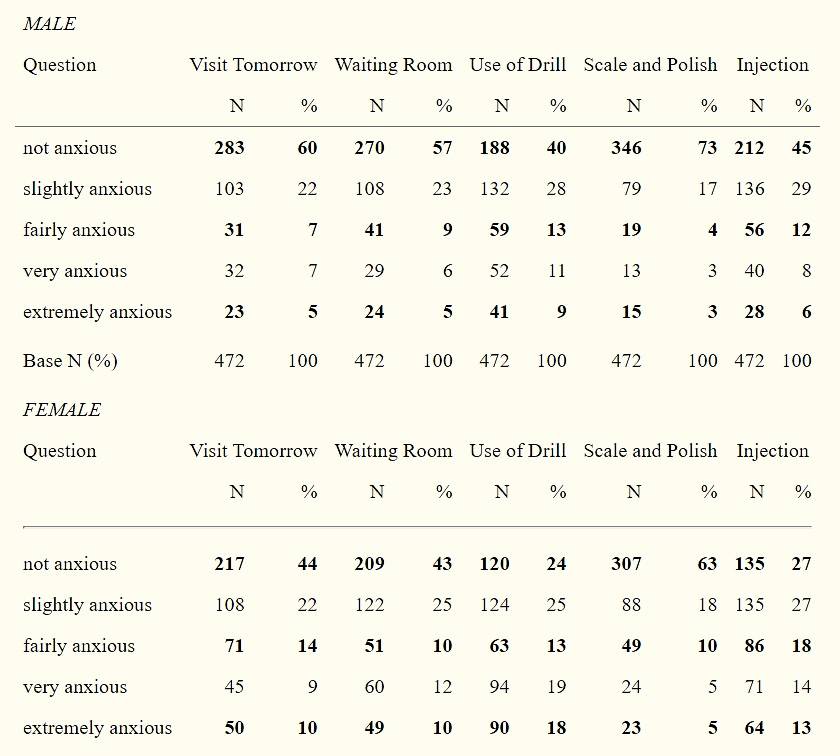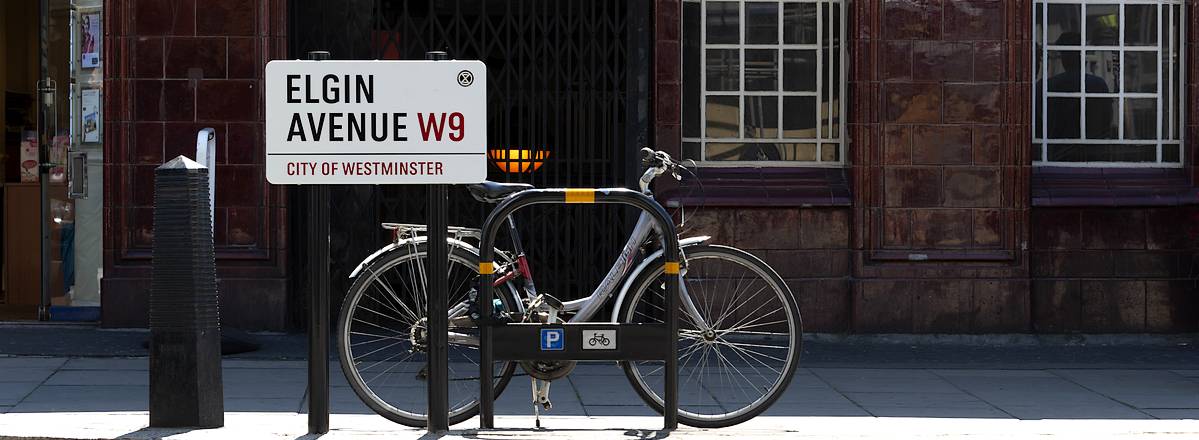With the subtleties of individual feelings, there is no defined figure for patients who suffer from serious dental anxiety. If you combined various studies and took a ballpark figure, this would be around 15%.
The equivalent of 10 million people in the UK, so nobody should feel that phobia about dental visits is unusual. Neither are other perceptions always accurate, as we can see in the data from one study below:

In general, the figures are typical and reasonable, although you may notice that far more women than men report phobic tendencies. The question is whether women simply feel more free to admit to them.
Other research has found this to be the case, whilst establishing a few tendencies which are consistent. The idea of fearful children is not wholly accurate, equally, dental anxiety tends to decrease with age, the peak is around 20 to 40.
There are still no generalities which a dentist should note too much, a child, or an older person could well have serious dental anxiety. Neither would this be anything other than rational for many of us.
The Oral Health Foundation suggested around half of adults have a fear of the dentist to some extent and they could be correct. The degree to which this affects people may simply be down to their make up.
Mankind evolved to associate certain situations with unpleasant outcomes. The mind reacts to them, producing what we call fear, our genetic profiles and to a degree upbringing can make those feelings stronger, or weaker.
Dental anxiety is not normally a fear of pain as such, or a personal deficiency in any sense. People are just behaving as nature has programmed them to do and the only consideration is how to give them support.
Personally Tailored Care
Having a specialist talk through your treatment, in a relaxed environment, is a helpful start. They can take the time you need to explain any treatment and with clear understanding, our concerns tend to lessen.
We can also help to identify if particular aspects of treatment cause the greatest distress and look at the available options. Individual plans for sedation may be another useful asset.
Agreeing an established way to signal to your dentist that you need a break can help. This stops peak concerns of most types and those which people can experience of helplessness, or loss of control.
Wearing earphones and listening to music can assist patients, or other mind diversions, which make you feel elsewhere. Being familiar with the practice environment may be a further way of reducing fears.
You are welcome to visit the surgery before treatment, have a look around, meet our receptionist and your dentist. Also a great opportunity to tell the dentist that you’re anxious, so they can prepare extra support.
Choosing a time of day when you are least stressed may be worthwhile, or gradually taking treatment forward. Perhaps start with a gentle clean, or one filling, as you build a rapport with your dentist, more can be done.
An Important Hurdle
We never underestimate dental anxiety, or consider this abnormal. Even so, working together to overcome the issues is vital. Your oral health and aspects of your general health are otherwise at risk, through no fault of your own.
None of us get to choose how our amygdala, or hippocampus develop. Any of us could fear heights, water, snakes, ageing, or most common of all, having to visit a dentist.
The key is to find a dentist who understands that your concerns aren’t in any way irrational. One that will listen and then offer you the calmest, most gentle and importantly, pain free experience possible.
Anxiety is best overcome by building confidence in dental treatment. A need understood by our whole team and one we enjoy, helping nervous patients and seeing them maintain fine oral health is a pleasure.

